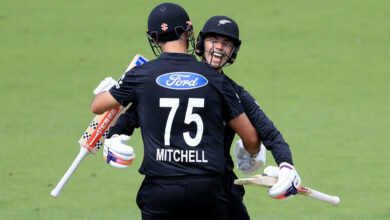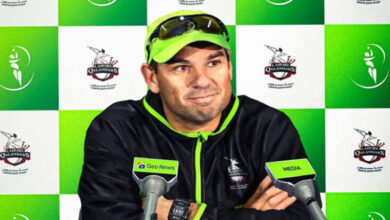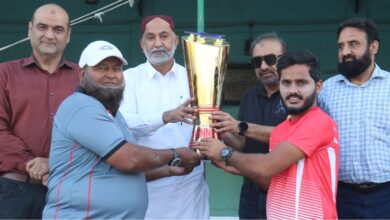Bob Willis lost the battle against cancer,dies at the age of 70


Bob Willis, the former England captain and fast bowler who will be forever synonymous with England’s 1981 Ashes victory, has died at the age of 70 after a short battle with cancer.
Willis claimed 325 wickets in a 90-Test career that began on the Ashes tour in 1970-71, when he was called up as a 21-year-old as a late replacement for the injured Alan Ward and played a full role in a famous 2-0 series win.
Nicknamed “Goose” for his unconventionally loose-limbed approach to the crease, Willis was capable of extreme hostility with the ball, making him England’s one true answer to the West Indian and Australian pace batteries that dominated the 1970s and early 1980s.
His finest hour came at Headingley in 1981, when – in the wake of Ian Botham’s counter-attacking 149 not out – he tore into Australia’s second innings in a frenzied display, pounding down the hill from the Kirkstall Lane end to deliver an incredible 18-run win with figures of 8 for 43.
Botham would go on to describe Willis as a “tremendous trier, a great team-man and an inspiration – the only world-class fast bowler in my time as an England player”.

Willis went on to lead England on 18 occasions in Test cricket, including the 1982-83 Ashes tour, where England were defeated 2-1 though not before pulling off a remarkable three-run win in the fourth Test at Melbourne.
Replacing Keith Fletcher in the wake of the 1981-82 tour of India and Sri Lanka, Willis inherited a weakened team, shorn of a number of key players including Graham Gooch and Geoff Boycott who had signed for that year’s rebel tour of South Africa. But he went on to claim nine wickets in his first match in charge, against India at Lord’s, and would lead the side through to the visit of West Indies in 1984.
Willis retired after the first Test of that summer as England’s leading wicket-taker, and second in the world overall, behind Australia’s Dennis Lillee. His national tally was subsequently overhauled by his long-term team-mate Botham (383), and more recently James Anderson (575) and Stuart Broad (471).
He also captained England at the 1983 World Cup, where England were defeated by India, the eventual winners, in the semi-final at Old Trafford. He claimed 80 wickets at 24.60 in 60 ODIs overall, and was a member of the team that lost the 1979 World Cup final against West Indies at Lord’s.
The fact that Willis endured as long as he did made him something of a medical miracle, as he had to overcame surgery on both knees in 1975 before going on to claim 899 first-class wickets at 24.99 in 308 appearances, the majority of them in a 12-year career with Warwickshire.
After retirement, Willis went on to forge a career in the media, and was most recently an acerbic and popular pundit on Sky Sports’ post-match show, The Verdict. His off-the-cuff criticisms of England’s players were frequently robust but delivered with an undertone of humour, such as in the wake of England’s 2015 Ashes victory, when Joe Root mimicked his style while wearing a mask in a live TV interview.
Willis’ family said in a statement: “We are heartbroken to lose our beloved Bob, who was an incredible husband, father, brother and grandfather. He made a huge impact on everybody he knew and we will miss him terribly.”
Tributes poured in in the wake of the news, with David Gower, Willis’s friend and former England team-mate, telling BBC Radio Five Live: “I toured with him as a captain and I took over the captaincy from him and then had him as what was called in those days as an assistant manager. He was a very loyal friend and a loyal supporter. Without going into too much unseemly detail, it was an era where you were allowed to have more fun than you are possibly today. Various tours Down Under were colourful, let’s put it that way.”
“Bob Willis was my first England captain and a legend of England cricket,” wrote the former England allrounder Derek Pringle, on Twitter. “Headingley 1981 was as much his triumph as Beefy Botham’s – RIP Big Bob…”
The ECB, who last year named Willis in an all-time England XI, also paid tribute to “a legend of English cricket” and “a perceptive and respected voice at the microphone”, adding that “cricket has lost a dear friend”.
He is survived by his wife Lauren, daughter Katie, brother David and sister Ann.




